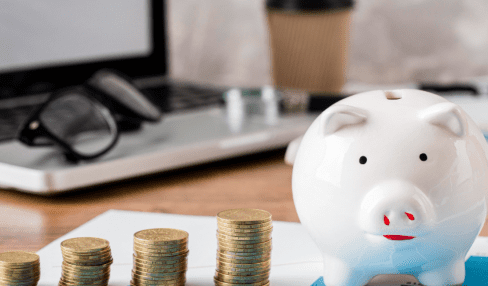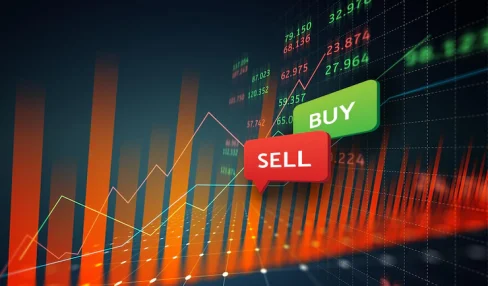Common Crypto Tax Mistakes That Could Cost You Big
5 Mins Read
Published on: 29 March 2025
Last Updated on: 09 April 2025

toc impalement
Cryptocurrency has turned everyday investors into (almost) overnight millionaires—but if you’re not careful, it can also turn you into an unsuspecting target for the Canada Revenue Agency (CRA). If you’re trading Bitcoin, staking Ethereum, or flipping NFTs, one thing remains true: tax mistakes in the crypto world can be expensive.
Many Canadians assume that crypto exists in some regulatory gray area, free from the watchful eye of the taxman. Spoiler alert: It doesn’t. The CRA has been cracking down hard, and if you’re not reporting your crypto income properly, you could be in for a world of financial and bureaucratic pain.
If you need cryptocurrency tax assistance, now is the time to get it—before the CRA comes knocking.
Common Crypto Tax Mistakes You Must Avoid In 2025
Crypto can be a treacherous landscape for beginners. The landscape is riddled with complexities and regulatory jargon that can take some time to get used to. On top of that, a developing ecosystem also means that nothing is permanent.
In other words, the landscape is in a constant state of evolution. This means it can take some time to understand the regulatory landscape. Therefore, in this section we will take care of a very important detail to help you be a better trader.
Let’s break down some of the most common crypto tax mistakes Canadians make and how to avoid them.
1. Thinking Crypto is Tax-Free
Some investors still believe that because crypto isn’t “real” money, it doesn’t need to be reported. That’s completely wrong. In Canada, crypto is considered a commodity, and every time you sell, trade, or exchange it, that transaction has tax implications. Gains? Taxable. Losses? Reportable. Ignoring this won’t make it go away—it will just worsen the penalties.
2. Misclassifying Your Crypto Activity
Are you an investor, miner, or trader? The CRA classifies crypto profits as either capital gains or business income. But here’s the issue: just because you think you’re an investor or hobbyist doesn’t mean the CRA does.
If you’re frequently trading, using leverage, or running a crypto-related business, your gains could be taxed as business income. Even a single transaction can get you classified as a business concern.
Crypto businesses have different reporting obligations based on the nature of their activities. Misclassification and misreporting can put you at high risk of an audit.
3. Ignoring Airdrops, Staking Rewards, and Yield Farming
It’s easy to remember to report profits from selling Bitcoin, but what about the crypto you didn’t buy? Airdrops, staking rewards, and DeFi earnings are all taxable—even if they just appear in your wallet. The CRA considers these incomes, meaning they’re taxed at your full marginal rate. Forgetting to report them could mean penalties down the line.
4. Failing to Track Transactions Properly
Crypto moves fast, and if you’re not keeping detailed records, you’re setting yourself up to make mistakes. The CRA expects accurate transaction records, including purchase prices, dates, transaction fees, and market values at the time of each trade.
If you’re relying on an exchange to track this for you, think again—without your own records made at the time of the transaction, you might overpay or underpay taxes, and either mistake can be costly.
5. Forgetting About Crypto-to-Crypto Trades
Selling Bitcoin for cash is obviously taxable, but did you know that swapping ETH for SOL (or any other crypto pair) is also taxable? Every time you trade one cryptocurrency for another.
It triggers a disposition, meaning you must calculate gains or losses based on the market value during the trade. Many crypto traders rack up thousands of transactions without realizing they owe tax on each one.
How to Stay Out of Trouble
Crypto taxation isn’t always straightforward, but that doesn’t mean you can ignore it. To avoid costly mistakes:
- Track every transaction meticulously – Use crypto tax software or spreadsheets to stay organized.
- Understand how your activity is classified – Capital gains vs. business income matters.
Report everything—airdrops, staking, DeFi earnings—if you received it. The CRA wants to know about it. - Seek professional guidance – Always consult an experienced tax lawyer specializing in Canadian crypto tax laws for a professional opinion on how they apply to your transactions. This can save you thousands in the long run.
Crypto taxes might not be the most exciting part of investing, but getting them wrong can be a very expensive lesson. Play it smart, stay compliant, and keep more of your hard-earned digital wealth where it belongs—in your wallet, not the CRA’s.
How To Be A Better Trader?
Now, we have covered most of the important details, including some of the most common crypto tax mistakes that can land you in trouble. Therefore, it is time that we take a detailed look into some more pointers that will help you become a better trader.
- Understand the cycle: Every market operates in a cycle. As a trader, you must understand these cycles. Understand what sends a market up and what brings it down. This will allow you to maximise profits and minimise risks.
- Do not invest emotionally: Many people tend to invest emotionally. This is a big no! Try to invest logically, and do not let your emotions get the better of you. Otherwise, you will end up making mistakes and lose out on money. This is even bigger than crypto tax mistakes.
- Have an exit strategy: Having an exit strategy is crucial in all aspects. In other words, you must have a plan to exit the pool to have the best outcome. This can be a lifesaver to a great extent.
- Diversify: Finally, remember to diversify your portfolio. This is very important as diversifying improves your chance of making it big and minimises your chance of incurring losses.
The Final Thought
In the end, you must be very wary of all the different crypto tax mistakes that we have discussed here. These pointers will allow you to minimize your risks and improve your chances of making it big.
Therefore, be very careful and understand the nuances if you truly want to be a better trader than all of your compatriots. Do let us know if you liked this piece of content, and follow our page for more such content on business and wealth management.
Read Also:

















